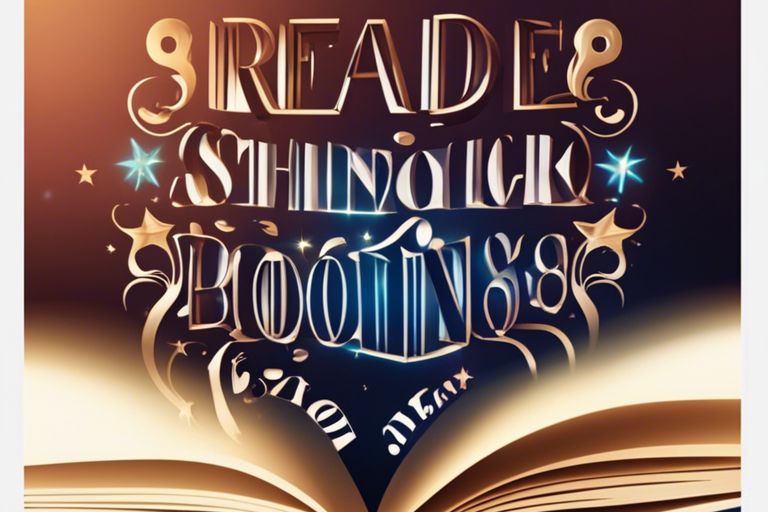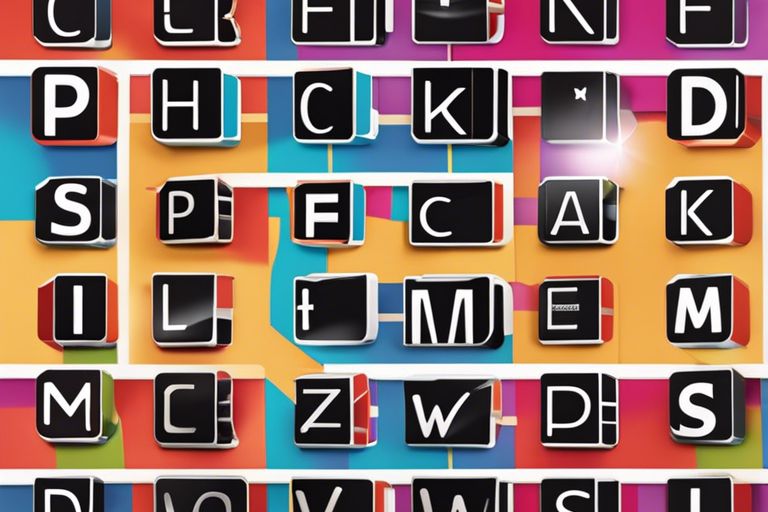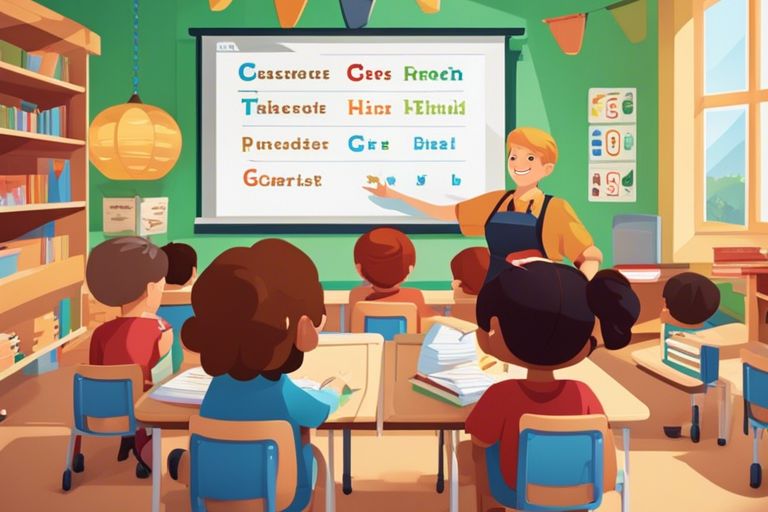Phonics is a fundamental skill that lays the groundwork for reading and writing proficiency in children, Choosing the right phonics books is crucial for educators and parents looking to enhance their teaching methods or support their child’s learning journey. In this blog post, we will explore the top 5 phonics books that experts in the field have highly recommended. These books are not only informative but also engaging, offering a wealth of resources and activities to make the learning process fun and effective. Whether you’re a seasoned educator or a dedicated parent, these books are sure to be valuable additions to your library.
Key Takeaways:
- Phonics Books: Phonics books are important tools for educators and parents to help children learn how to read and improve their literacy skills.
- Interactive Content: Look for phonics books with interactive content such as games, puzzles, and activities to engage children in the learning process.
- Systematic Approach: Choose phonics books that follow a systematic approach to teaching phonics, starting from basic sounds to more complex phonetic patterns.
- Visual Aid: Books with colourful illustrations and clear fonts can help children better understand and retain phonics concepts.
- Comprehensive Resources: Opt for phonics books that provide a range of resources for both educators and parents, such as lesson plans, teaching tips, and assessment tools.
Comprehensive Guides for Phonics Instruction
Overview of Phonological Skills Development
Understanding phonological skills development is vital for effective phonics instruction. Phonological skills include phonemic awareness, phonological memory, and decoding skills that are crucial for reading and spelling development. By breaking down words into sounds and understanding the relationships between letters and sounds, children can improve their literacy skills.
Strategies for Teaching Phonics
When teaching phonics, it is important to use a multi-sensory approach that combines visual, auditory, and kinaesthetic techniques. Activities such as letter-sound matching, blending, segmenting, and word building can help reinforce phonics concepts. Providing plenty of opportunities for practice and reinforcement is key to helping children become confident and proficient readers.
Top 5 Phonics Books for Educators
Essential Features of Effective Phonics Books
When selecting phonics books for educators, it is crucial to choose ones that have a systematic and structured approach to teaching phonics. The books should cover phoneme-grapheme correspondence, blending and segmenting sounds, as well as include engaging activities to reinforce learning. A clear progression of difficulty levels and ample opportunities for practice are also necessary features to look out for in phonics books.
Detailed Reviews and Uses in Classrooms
The top 5 phonics books for educators are carefully curated to cater to different learning styles and abilities in the classroom. From interactive stories with colourful illustrations to hands-on activities and games, these books offer a well-rounded approach to teaching phonics. Educators can use these books not only for whole-class instruction but also for small group activities and one-on-one interventions to effectively support students in mastering phonics skills.
Additionally, these books provide guidance on how to differentiate instruction to meet the needs of diverse learners, making them valuable resources for educators working in inclusive classrooms. By incorporating these phonics books into their teaching practices, educators can create engaging and effective phonics lessons that nurture early literacy development in their students.
Top 5 Phonics Books for Parents
Supporting Your Child’s Reading at Home
Supporting your child’s reading at home is crucial for their literacy development. By incorporating phonics books into your child’s daily reading routine, you can help strengthen their decoding and word recognition skills. Encouraging your child to sound out words and identify phonetic patterns will build a strong foundation for their reading abilities.
Books That Complement School Learning
Choosing books that complement your child’s school learning is a great way to reinforce the phonics principles they are being taught in the classroom. Look for books that align with the phonics programme used at school to provide continuity and support your child’s understanding of key concepts. These books can further reinforce phonics rules and boost their confidence as they apply their knowledge to more complex texts.
Using Phonics Books for Special Learning Needs
Adapting Phonics Instruction for Diverse Learners
When using phonics books for special learning needs, it’s crucial to adapt the instruction to cater to the diverse needs of the learners. This may involve providing additional support such as visual aids, manipulatives, or breaking down complex concepts into smaller, more manageable steps. Tailoring the instruction to match the individual learning styles and abilities of the learners is key to ensuring they can effectively grasp phonics principles.
Phonics Books with Multisensory Approaches
Phonics books with multisensory approaches are highly effective for learners with special learning needs as they engage multiple senses simultaneously to reinforce learning. By incorporating activities that involve sight, sound, touch, and movement, these books cater to different learning styles and help solidify phonics skills in a more holistic way. This approach can be particularly beneficial for learners who may struggle with traditional teaching methods or have sensory processing differences.
Conclusion: Top 5 Phonics Books for Educators and Parents
These top 5 phonics books for educators and parents offer a valuable resource for teaching reading and spelling skills to children. From comprehensive guides to fun activities, each book delivers vital knowledge and practical exercises to enhance phonics instruction. By incorporating these recommended resources into teaching practices, educators and parents can effectively support children’s literacy development and foster a strong foundation for reading success. Investing in these phonics books will not only benefit the children but also equip adults with the necessary tools and strategies to make learning phonics engaging and impactful. By exploring these top picks, educators and parents can ensure a holistic approach to phonics instruction that caters to the diverse needs of young learners.
FAQ
Q: What are phonics books and why are they important for educators and parents?
A: Phonics books are educational resources that help learners develop their phonemic awareness and decoding skills by focusing on the relationship between sounds and letters. They are crucial for educators and parents as they provide a structured approach to teaching reading and spelling, ultimately laying a strong foundation for literacy development.
Q: How do phonics books enhance the literacy skills of children?
A: Phonics books use a systematic and sequential approach to teach children how to decode words by sounding out letters and letter combinations. By mastering phonics principles, children can improve their reading fluency, vocabulary, and comprehension skills, important components of literacy development.
Q: What criteria should educators and parents consider when choosing phonics books?
A: When deciding on phonics books, educators and parents should consider factors such as the book’s alignment with the national curriculum, its level of difficulty, the presence of engaging illustrations and activities, and its focus on phonemic awareness, phonics rules, and word families.
Q: How can educators and parents effectively use phonics books in teaching children to read?
A: Educators and parents can maximise the benefits of phonics books by following a structured instructional approach that includes explicit teaching of phonics rules, engaging children in hands-on activities and games to reinforce learning, providing opportunities for independent practice, and offering continuous support and feedback.
Q: Can phonics books cater to learners with different abilities and learning styles?
A: Yes, phonics books are versatile tools that can be adapted to suit the needs of learners with varying abilities and learning styles. Educators and parents can customise the pace of instruction, provide additional support or challenges as needed, and incorporate multisensory techniques to accommodate different learning preferences.












